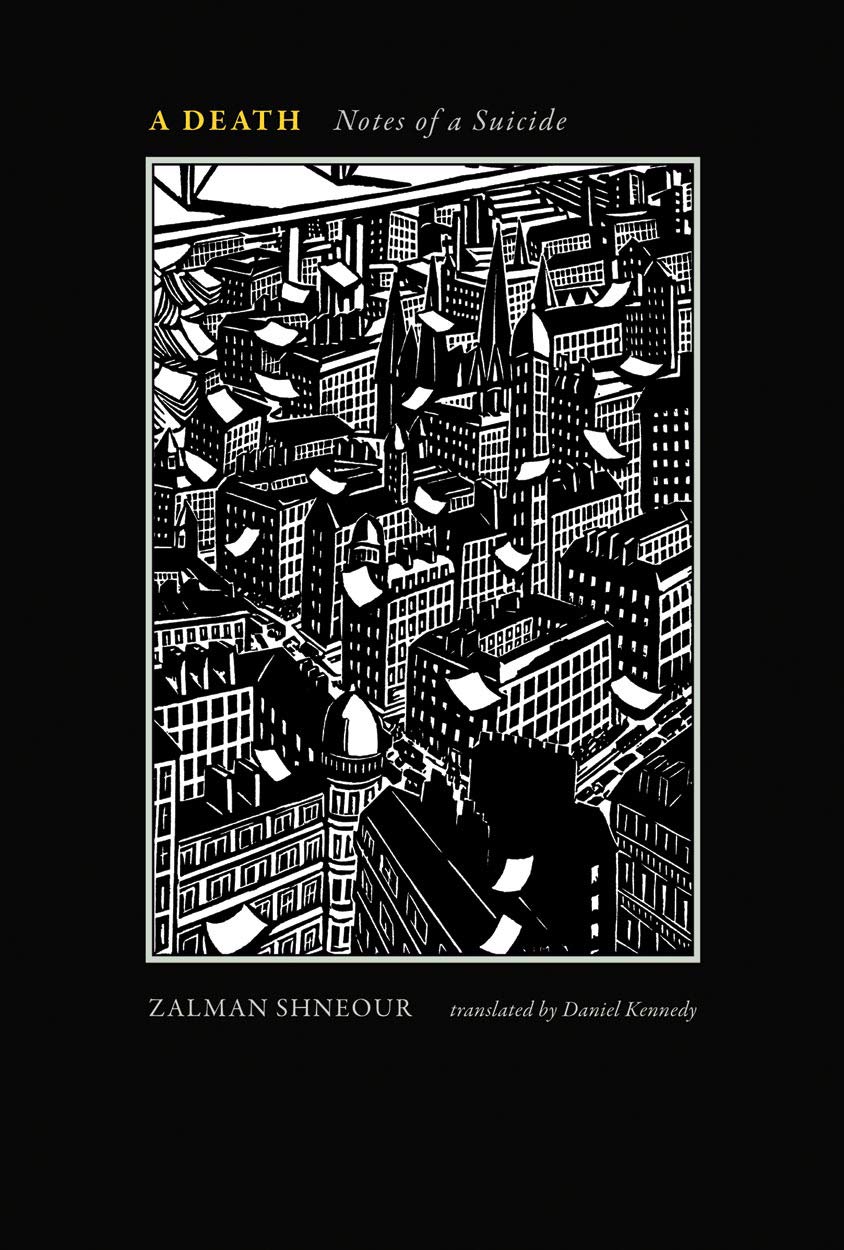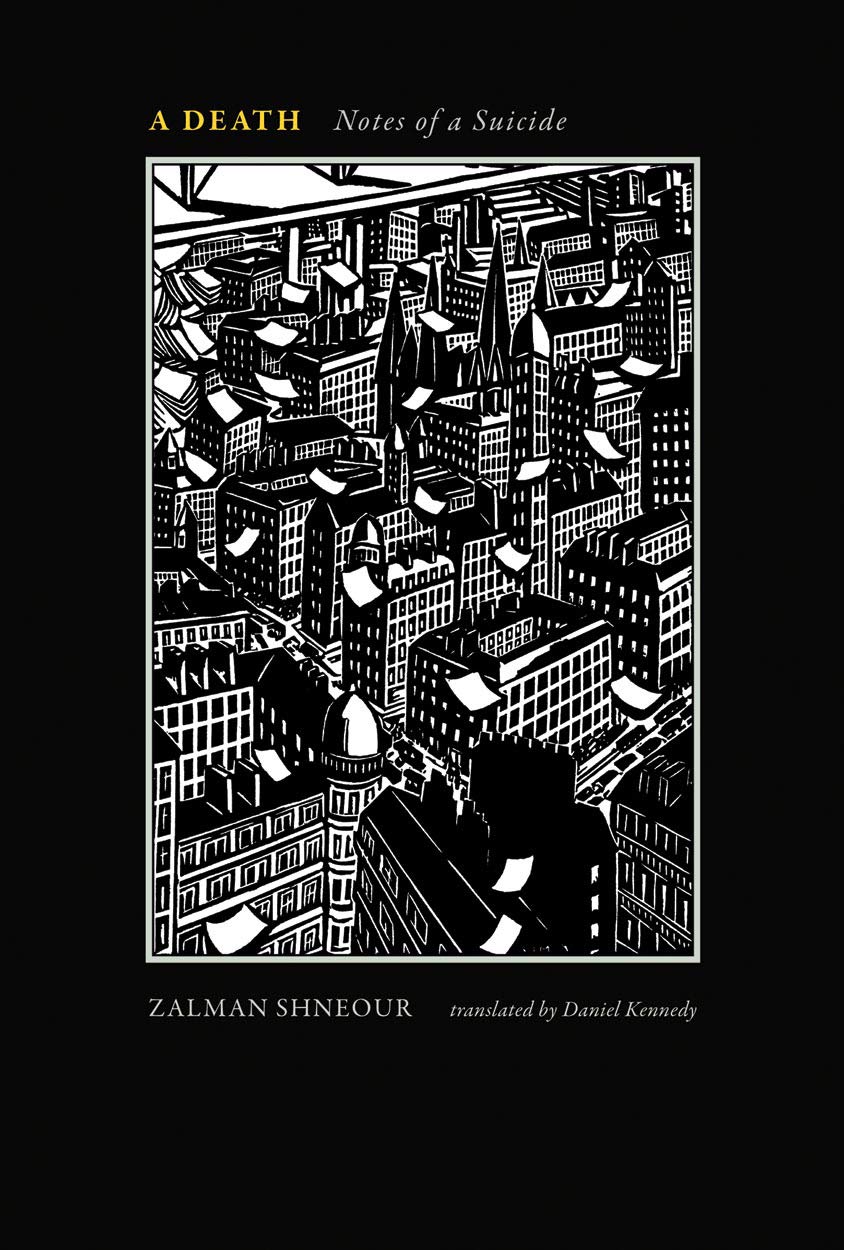A Death: Notes of a Suicide
A Death: Notes of a Suicide
Zalman Shneour
Couldn't load pickup availability
Translated, with an introduction, by Daniel Kennedy / October 2019 / 5.375 x 8, 176 pp. / 978-1-939663-45-0
In a Yiddish take on Notes from Underground, a dark, expressionist love affair develops in a large, unnamed Eastern European city between the young, impoverished, and violently self-loathing teacher, Shloyme—and a hungry, spiteful, and unsettlingly sensual revolver. Purchased from a friend ostensibly to protect him from the pogroms sweeping the empire, the weapon instead opens a portal to Shloyme’s innermost demons, and through it he begins his methodical mission to eradicate any remnants of life and humanity in him and pave the way for his self-destruction. A Death takes the form of a diary that follows the Jewish calendar, describing hallucinatory demons and parasitical urges as its author spends his remaining days excising all his responsibilities and acquaintances from a life now devoted to not living.
Written in Yiddish in 1905 and published with immediate success in Warsaw in 1909, A Death utilizes the influences of Dostoyevsky and Schopenhauer to depict a distinctly Jewish experience of homelessness and uprooted modernity. Zalman Shneour’s short novel presents a much lesser-known strand of Jewish decadent literature and an authorial voice that has been buried for too long. This introduction of Shneour’s inaugural novel is his first appearance in English since 1963. Its exploration of alienation, mental health, toxic masculinity, and violence is remarkably contemporary.
Born in Shklow, Zalman Shneour (1887–1959) was a major figure of Jewish modernity and one of the most popular Yiddish writer between the World Wars. He wrote poetry, prose, and plays in both Yiddish and Hebrew. Like many of his generation, his life was spent moving from city to city in search of literary community or escaping political turmoil: from Odessa to Warsaw to Vilne, and on to such Western cities as Bern, Geneva, Berlin, Paris, New York (where he died), and Tel Aviv (where he is buried). His psychological fiction brought the insights of Nietzsche and Freud into the narrative world of Eastern European Jewish life.
Press
“Atmosphere abounds in this short, bleak novel. Its narrator’s descriptions hew toward the grotesque, which heightens the stylization of the work. His sublime indifference toward the world around him makes for some chilling passages...”
—Tobias Carroll, Words Without Borders
“Gonzo journalism for alienated killjoys, with a genuine sense of clogged air in chilly rooms, gnat-like people swatting around Shklow or Odessa in the long Eastern fin de siècle.”
—Martin Billheimer, Counterpunch
“A Death is an uncomfortable, dark novel, but a strong piece of work. Obviously, readers should be aware of what they're letting themselves in for, but for those up to it, it's a disturbingly satisfying read.”
—M. A. Orthofer, The Complete Review


